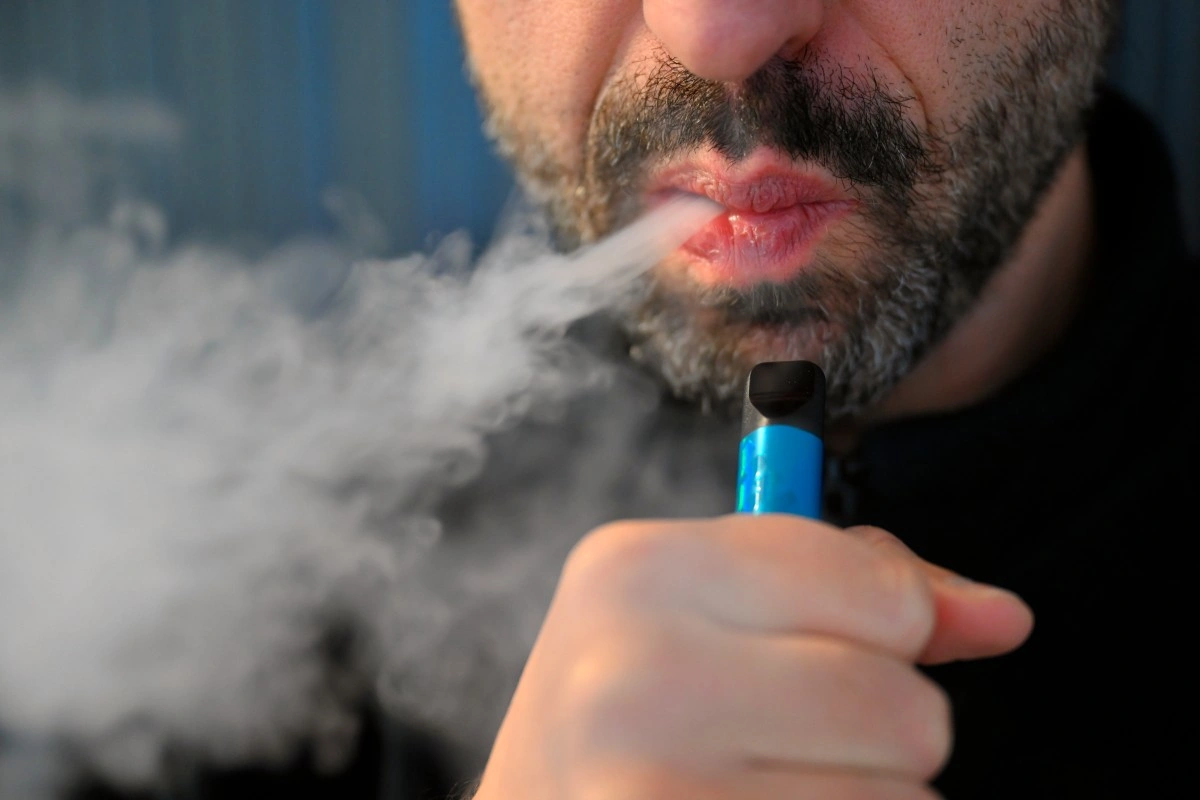Starting January 1, Belgium will ban the sale of disposable e-cigarettes, becoming the first country in the EU to take this step.
This move is part of the country’s broader anti-tobacco plan, aimed at safeguarding young people’s health and reducing nicotine addiction. These vapes, known for flavors like apple, watermelon, and cola, have become very popular among younger users.
EU’s Goal for a Tobacco-Free Generation
The European Union plans to achieve a tobacco-free generation by 2040. It aims to cut down the number of smokers in its 27 countries from about 25% to below 5%. Some EU nations, however, are pushing to meet this target even earlier.
Why Target Disposable Vapes?
While vapes are often promoted as less harmful than traditional cigarettes, they still contain nicotine, a highly addictive substance. Critics worry that disposable e-cigarettes, with their colorful packaging, low cost, and enticing flavors, could lead young users toward smoking regular tobacco products.
“The problem is that young people start vaping without realizing the nicotine content, which is addictive,” said Nora Melard, spokesperson for the Alliance for a Tobacco-Free Society in Belgium. Some even report waking up at night to vape, a concerning sign of dependency.
Quick Action from Belgium
Belgium recognized the dangers of disposable vapes shortly after their introduction more than five years ago. In 2021, the government proposed a ban to the European Commission, which approved it in March 2024. This paved the way for a national law that will soon come into effect.
Other EU countries are following suit. France, for instance, is preparing a similar ban, including heavy fines for violations. French and Belgian health officials emphasize the harm nicotine poses to adolescent brains and its potential to lead to the use of other drugs.
Why Are Disposable Vapes Popular?
An EU study in 2023 revealed that single-use e-cigarettes are especially popular among 15-to-24-year-olds. These vapes are affordable, easy to use, and widely advertised on social media.
At just five or six euros, a disposable vape costs about half the price of a 20-pack of cigarettes, with some offering up to 9,000 puffs, equivalent to over 300 cigarettes.
Divided Opinions
In Brussels, tobacco shops are quickly running out of single-use vapes as stocks won’t be replenished. Young users are divided on the ban.
“I don’t understand why vapes are banned but not tobacco, which is also dangerous,” said Ilias Ratbi, a vape user.
Others, like Yona Bujniak, support the decision. “Stopping the sale is a good idea. Many young people start vaping without considering the consequences,” she said.
Environmental Impact
The ecological damage caused by disposable vapes is another concern. These products, made with plastic and lithium batteries, are often discarded within days of purchase. Rechargeable vapes, on the other hand, can last for six to seven months, making them a more sustainable alternative.
A Step Forward
Belgium’s ban on disposable e-cigarettes is seen as a major step in addressing nicotine addiction among youth and reducing environmental harm. By tackling the popularity of single-use vapes, Belgium is setting an example for other EU countries to follow.





